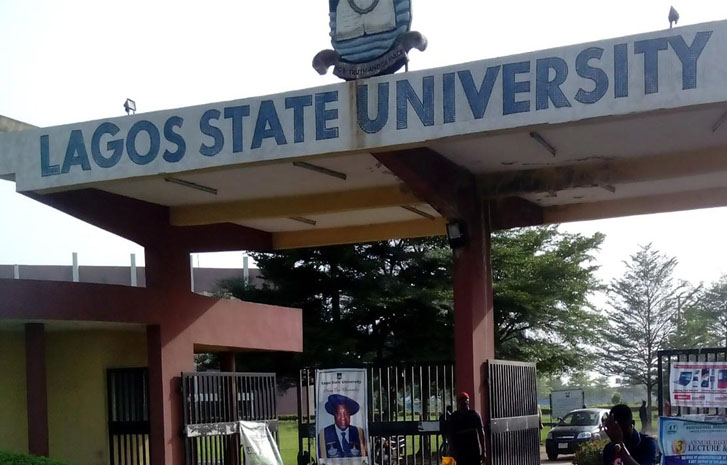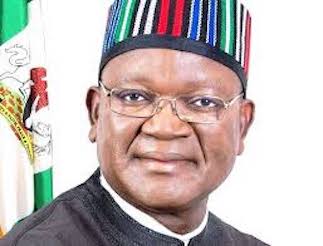Metro
Information Minister: 2024 Budget Demonstrates Tinubu’s Commitment to Fiscal Responsibility

The Minister of Information and National Orientation, Alhaji Mohammed Idris, says the 2024 Appropriation Bill of N27.5 trillion submitted to the National Assembly demonstrates President Bola Tinubu’s commitment to fiscal responsibility.
Idris stated this at the 2023 Public Lecture and Annual General Meeting of the Kaduna State Chapter of the Nigerian Institute of Public Relations (NIPR) on Saturday in Abuja.
The meeting with the theme, “Demographic transition, ethical resources, and sustainable development: Reflection on Northern Nigeria”, was organised by the Kaduna Chapter of the NIPR.
The minister described Tinubu as a transformational leader with a solid track record in the private sector and at the level of subnational government.
According to Idris, Tinubu is a man who will not be fazed by challenges and obstacles, because he is a man that is more than equal to the task.
“Just this week, he presented the 2024 Appropriation Bill of N27.5 trillion to the National Assembly, the first full-year budget of his administration.
“The budget as presented, signifies a pivotal step towards the realisation of his Renewed Hope Agenda, by aligning fiscal strategies and priorities with broader national development objectives.
“In addition to its focus on development priorities, the budget demonstrates Tinubu’s commitment to fiscal responsibility with all sense of sincerity, transparency and accountability.
“President Tinubu’s administration recognizes the importance of prudent financial management as the foundation for long-term economic stability.
“As the 2024 appropriation bill moves through the legislative process, we are very optimistic that its passage will mark the beginning of a transformative era, bringing tangible improvements to the lives of Nigerians.
“Before the budget presentation, President Tinubu had assented to an equally important Supplementary Budget, signed some landmark bills and Executive Orders into law, and inaugurated initiatives on fiscal policy reform,” he said.
The minister added that the goal has been to deliver relief to the Nigerian people, and lay the groundwork for true and lasting prosperity.
On the theme of the public lecture, Idris said the concept of demographic transition is a very important one for Nigeria, considering the place it occupies as Africa’s most populous country.
According to him, by the year 2050, Nigeria will be the third most populous country in the world, after India and China, and ahead of the United States.
“On top of this, we are a very young population, with a median age of 19. What this means is that half of the population of our country is younger than 20.
“We owe these teeming young people a great deal, starting with ensuring that they are educated for the world of the 21st century. Indeed, with our population, we are at a crossroads.
“The choice is now up to us, as leaders, as elites, regarding what direction Nigeria will proceed in.
“Today’s young people, if properly educated and catered for, will be tomorrow’s engaged and productive labour force.
“Demographics are not only about age; gender is another important element. Nigeria’s population is roughly split evenly between men and women.
“One of the pillars of President Bola Tinubu’s Eight-Point Agenda is inclusivity, which means inclusive policies and programmes for all segments of the population, especially youth and women.
“You can see manifestations of this, even in the array of appointments made by the president so far, and the prominence given to young people and to women,” the minister said.
The President and Chairman of Council of the Institute of NIPR, Dr Ike Neliaku, represented by a Fellow of the Institute, Alhaji Bashir Chedi, commended the Kaduna Chapter for being active, consistent and always setting the pace.
According to Neliaku, the theme for the conference is very apt and urged members to keep to the ethic and values of the NIPR and also to add value to organisations they are working for.
Similarly, the Chairman of Kaduna Chapter of the NIPR, Mr Haroun Malami, said public relations served as an indispensable tool for shaping perception and fostering a supportive environment contributing to sustainable development initiatives.
He said “figures from the National Bureau of Statistics shows that for every new children born in Nigeria between 2016 and 2019, seven were from the northern states”.
The keynote address on ‘Demographic transition, ethical resource and sustainable development, was delivered by the former Governor of Niger, Dr Mua’zu Babangida Aliyu.
The event attracted the Directors-General of Federal Radio Corporation of Nigeria, Dr Mohammed Bulama; Nigerian Television Authority, Salihu Dembos, and Voice of Nigeria, Mr Jibrin Baba Ndace.
Also, in attendance were officials from Zonal Command of EFCC, FIRS, Kaduna State Government, Gombe Indigens Association in Kaduna, Jam’a Matan Arewa and the Nigeria Union of Journalists.
NAN reports that awards in different categories were given to deserving members and other personalities in governance, gender politics and empowerment, tax administration, public broadcasting and many others. (NAN)
Metro
S’West Doctors threaten Strike over Unfavorable Allowances

Torough David, Abuja
The South-West Caucus of the Nigerian Medical Association (NMA) said its members may embark on strike if the unfavorable allowances introduced for doctors by the Federal Government is not withdrawn.
The caucus, which comprised Osun, Oyo, Ekiti, Ogun and Ondo states, said this at a news conference in Osogbo on Tuesday.
Dr Adeniyi Fasanu, the Caucus Chairman, stated that the recent circular issued by the National Salary, Income and Wages Commission (NSIWC) concerning doctors (increased) allowances, is not in tandem with economic reality.
Fasanu, who is also the Osun State NMA Chairman, said the national leadership of NMA had given the Federal Government 21-day ultimatum to withdraw the circular.
He said the southwest caucus aligns with national leadership of the NMA in demanding for: immediate correction of inconsequential adjustment in alignment with the 2001, 2009 and 2014 Collective Bargaining Agreements (CBAs).
“Full payment of 2025 Medical Residency Training Fund (MRTF) and comprehensive review of the fund to reflect current economic realities,” he said
Dr Olumuyiwa Alonge, Ondo NMA Chairman, said the FG did not consult them before announcing the allowances.
Alonge said this was the time medical doctors needed to be motivated as there was a serious shortage of doctors in the country, with a ratio of one doctor to 10,000 patients.
Speaking, Dr Ifedayo Oreyemi, Ekiti State NMA Chairman, said 2,000 doctors leave the country yearly, adding that if doctors’ welfare was not given adequate attention, doctors would continue to leave the country for greener pasture.
Ogun State NMA Chairman, Dr Luqman Ogunjimi said the NWIC circular on doctor’s allowances would discourage doctors that were already overworked and underpaid, to want to remain and practice in the Nigerian health sector.
Oyo State NMA Chairman, Dr. Happy Adedapo said the government needed to be responsive to the plight of doctors, saying the allowance being introduced was insignificant against the rising inflation in the country.
The caucus, among their 18 demands, also ask for the implementation of the 2021 hazard allowance agreement, and implementation of the revised retirement age for medical and dental practitioners.
They said if the Federal Government failed to attend to their demands, the caucus would convene an emergency meeting to advise their members appropriately in concert with the national leadership of NMA.
| ReplyReply allForwardAdd reaction |
Metro
Don Urges Curricula Reform to Include African Perspectives in Science, Logic

Torough David, Abuja
The Deputy Vice-Chancellor (Academics), Lagos State University (LASU), Prof. Oseni Afisi, on Tuesday called for reform of Nigeria’s education curricula to include African perspectives in science, logic and ethics.
Afisi made the call while delivering the 108th LASU Inaugural Lecture Series at the university’s main campus, Ojo.
Afisi is a Professor of Philosophy of Science, Logic and Critical Rationalism at the Department of Philosophy, Faculty of Arts, LASU.
Afisi’s lecture was entitled ‘The Oracle and the Open Society: Rethinking of Evolution of Authority and the Pursuit of Epistemical Justice in African Philosophical Thought’.
The inaugural lecturer said that teaching reforms should also emphasise dialogical reasoning, moral accountability and critical thinking rooted in local languages.
“Curricula at all levels of education must be reformed to include African perspectives in science, logic and ethics.
“Beyond token inclusion, educational content should reflect the depth, complexity and contemporary relevance of African philosophies.
“Teaching methods should emphasise dialogical reasoning, moral accountability, and critical thinking rooted in local languages, oral traditions and community experiences.
“Textbooks and materials should be developed to support these aims,” he said.
He said that scholars must rise to the challenge of rethinking epistemology beyond the western cannon.
“Scholars should embrace epistemic pluralism by critically engaging indigenous knowledge systems and legitimising their knowledge within global discourse.
“Research must not only be methodologically rigorous but also socially responsive.
“Interdisciplinary work that bridges philosophy, science and African worldviews should be encouraged through collaborative platforms and funding schemes,” he added.
He said that there was an urgent need to institutionalise plural approaches to knowledge.
He also said that national policies should formally recognise and regulate the interface between biomedicine and traditional healing system.
“Artificial Intelligence systems must be built with transparency, fairness and communal accountability at their core.
“Algorithmic decision-making tools should be subjected to ethical scrutiny informed by African communitarian ethics such as Ubuntu.
“Innovation hubs and tech curricula should incorporate training in philosophy of technology and digital ethics from African perspectives,” he said.
According to Afisi, the lecture was not merely about comparing African and Western systems of knowledge.
“It is about addressing a deeper concern: the epistemic injustice suffered by African traditions under colonialism and their continued marginalisation in our institutions today.
“It is about reclaiming the integrity of indigenous epistemologies, engaging critically with global thought systems.
“Let us, therefore, re-imagine African societies where technological advancement is tempered by moral insight, where education is guided by critical consciousness and where governance reflects dialogue and dignity.
“May the African open society not be a borrowed idea, but a living tradition, critically reconstructed, philosophically grounded and ethically sustained,” he said.
Metro
I was Pressured to Abandoned Benue Anti-open Grazing Law – Ortom

From Attah Ede, Makurdi
The immediate past governor of Benue State, Samuel Ortom yesterday alleged that he faced severe pressure from the immediate past administration of Muhammad Buhari to abandon the implementation of the anti-open grazing law in the state.
He further revealed that his refusal to step down the law as demanded by Buhari Govt, also denied him N75 billion grant given to other states governors to clear salary arrears of civil servants, gratuities of pensioners and infrastructural development.
Ortom, who disclosed this during a media interaction held at his residence in Makurdi on Thursday, explained that, at first, he was offered N40 Billion free interest loan for infrastructural developments and another N35 billion to clear salary, gratuities of civil servants and pensioners.
“So, I was pressured to abandoned the law but I said no and I was denied N75 billion in all, including taken free interest loan from infrastructural bank to finance development projects and clear salary and gratuities civil servants and pensioners because of my stance to defend my people”
“That was why the killings could not stop. Is not all about anti open grazing law. It is Fulani herdsmen agenda. Their plans to chase us out of our land. It’s about land grabbing and so, we must not allow it to happen. We should continue to pray for the governor of Benue State, Fr. Alia, the SGF and President Tinubu to succeed”, Ortom stated.
Speaking on the clamour by some northern politicians for power to return back to the north, Chief alluded that he stands with southerners to continue with the presidency comes 2027.
He maintained that in line with the gentlemanly agreement of rotating the presidency from North to South, he insisted that the South be allowed to complete its eight years before the baton returned to the northern part of the country.
“Till today, I, Ortom, believe in the southern presidency, even if my party (PDP) is producing a candidate for presidency in 2027, the candidate must be from the South. South should be allowed to complete eight years.
“So, for me, I am not supporting a northern candidate. But we will do strategic partnerships to win elections. I will encourage it. Samuel Ortom believed in the southern presidency. I will not support the northern presidency in 2027. It was a gentleman’s agreement that power should rotate between north and south”, Ortom stated. Even if my party is bringing a candidate from the south, we need to scrutinize the people before he can be accepted”.
Asked to assess the president’s administration, Ortom applauded the ongoing reforms of President Bola Tinubu, stating that the reforms were adding value to the economy.
“The Tinubu administration is doing well, je is ensuring that the rule of law prevails and this is good for our country.
“The oil industry had been a place where a few cliques siphoned our common wealth but with the removal of subsidy, there is a lot of money in all the states.
“The president even stated this during his visit to Benue at the height of the killing of our people in Yelwata where he said that no state would say it doesn’t have money to pay salary.
“Also, the tax reform is a good step, and the ongoing reforms will help our economy to grow, Tinubu is not partisan, his dream is to make the country grow.
While castigating Buhari’s administration the former governor said that the Buhari administration took the country from ‘top to bottom’.
Ortom who is now member of Board of Trustee of the Peoples Democratic Party said, he is not part of coalition, adding that he is a bona fide member of PDP, leader of PDP and member of BoT of the party which made him not to think of going out of the party.
“I remain a member and leader of Peoples Democratic Party, am even a board member of my party and I don’t believe in coalition but where there’s need for strategic partnership you will see me there.
“Politics is a game of interest, no permanent enemy or permanent friend, but permanent interest. I don’t believe in the coalition movement. President Tinubu is doing very well.
| ReplyReply allForwardAdd reaction |





















